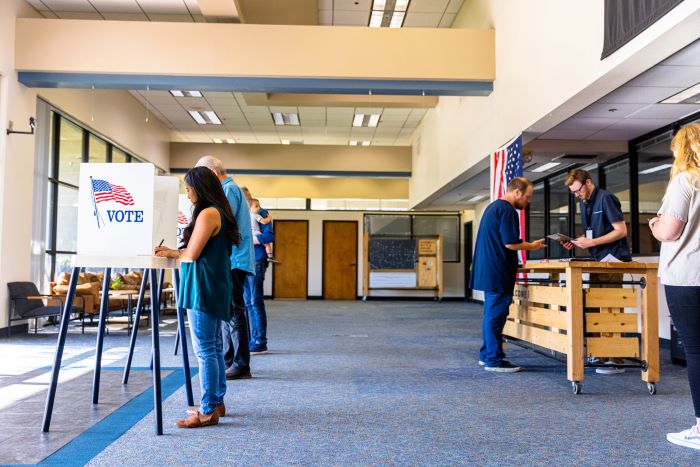Do the Right Thing, King County; Support Health Levy
When it comes to addressing behavioral health, King County has a numbers problem. Though we are home to 2.3 million people, the county currently has one voluntary behavioral health crisis facility with 46 beds. The average wait time for treatment is 44 days, and availability has shrunk precipitously since 2017, while pandemic-induced mental and behavioral health incidences have driven demand increases.
We must never forget that behind those numbers are mothers and sons, fiancés and friends—people for whom access to behavioral health services should come much easier in the state’s richest county. For years, King County has had a responsibility to change that. Now, it has a chance.
Proposition 1 for Behavioral Health is a special election ballot measure that will allow King County voters to decide whether to fund five new regional crisis centers that will provide 24/7, walk-in access to behavioral health services regardless of insurance status. The measure is on this month’s special election ballot, and voters have until April 25 to cast a vote to enact a property tax increment of $0.14.5 per $1,000 assessed value.
If enacted, the new levy could give the county $1.25 billion over nine years to implement the project, which calls for one center to be built in each of the county’s four drawn subdivisions, and a fifth center to be built for youth. Workforce recruitment and retention strategies, including wage increases, are proposed as part of the levy’s implementation.

Each proposed crisis center would contain 24/7 behavioral health emergency services for new patient intake, evaluation and stabilization. Patients will be able to receive a referral by calling 988 or being referred by a first responder or family member. Crisis care centers will also provide a “23-hour living room” staffed by trained peers and clinical mental health professionals and a 16-bed voluntary overnight crisis stabilization unit.
The levy also proposes a new countywide crisis responder assessment office, which would help identify opportunities to transition patients to more long-term care or living arrangements. And in a field marked with low wages and worker burnout, some of the funding would be used to increase and sustain the local mental health workforce.
United Way of King County values the well-being of every member of our community, particularly those who often find themselves beyond the reach of safety nets. United Way strongly supports acting at the local level to address an issue that is so dire that it can’t wait. We applaud the county’s elected officials as well as those in support of this measure who are not continuing to wait for the federal government or the state to restore prior levels of mental and behavioral health. Instead, they are taking action to resource an area that has significantly grown over the past several years.
According to a report from Public Health – Seattle & King County, drug overdose deaths increased by 20 percent between 2019 and 2020 and 39 percent between 2020 and 2021, driven by the presence of fentanyl. We need therapeutic, health-centered support for residents.
We support the county’s goal of having these crisis centers located throughout the area so this important service is accessible to all who need it.
United Way of King County president and CEO Gordon McHenry, Jr.
United Way used to fund some substance abuse treatment services, particularly for youth, but stopped doing so about 8-10 years ago when we shifted from being a safety net funder to an impact investor. Though we no longer fund such services, we understand how the issue of behavioral health is intertwined with our current work toward ensuring that all people have homes, students graduate and families are financially stable.
From our experiences, we’ve learned that access to behavioral health and other treatments is one of our community’s greatest unmet challenges and, left untreated, it can prevent those who find housing from remaining housed.
There has been some concern about where each of the five centers will be located, possibly causing some “not in my backyard” pushbacks. We at United Way are committed to serving the entire King County region and, therefore, we support the county’s goal of having these crisis centers located throughout the area so this important service is accessible to all who need it.
United Way proudly supports Proposition 1 for Behavioral Health; we see it as a major step in ensuring that our county’s crisis center availability matches its current need.


Comments